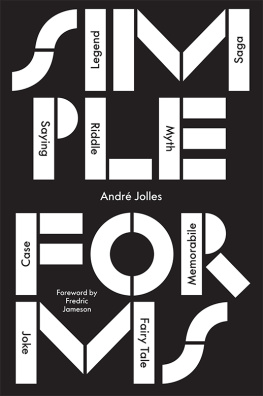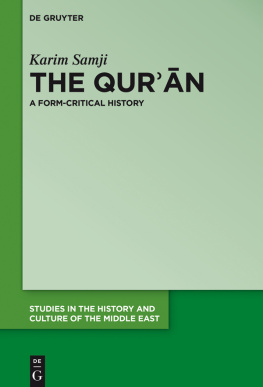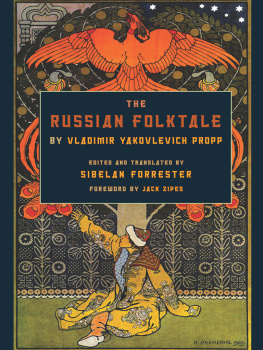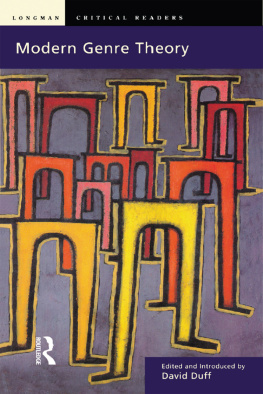SIMPLE FORMS
ANDR JOLLES
TRANSLATED BY PETER J. SCHWARTZ

This translation is based on Andr Jolless Einfache Formen: Legende, Sage, Mythe,
Rtsel, Spruch, Kasus, Memorabile, Mrchen, Witz, 2nd edn (Tbingen: Niemeyer,
1958) and is published by kind permission of Walter de Gruyter GmbH.
This English-language edition published by Verso 2017
Translation, Translators Introduction Peter J. Schwartz 2017
Foreword Fredric Jameson 2017
All rights reserved
The moral rights of the authors have been asserted
1 3 5 7 9 10 8 6 4 2
Verso
UK: 6 Meard Street, London W1F 0EG
US: 20 Jay Street, Suite 1010, Brooklyn, NY 11201
versobooks.com
Verso is the imprint of New Left Books
ISBN-13: 978-1-78478-493-5
ISBN-13: 978-1-78478-494-2 (UK EBK)
ISBN-13: 978-1-78478-495-9 (US EBK)
British Library Cataloguing in Publication Data
A catalogue record for this book is available from the British Library
Library of Congress Cataloging-in-Publication Data
Names: Jolles, Andre, 1874-1946, author. | Schwartz, Peter J., 1967-translator.
Title: Simple forms / Andre Jolles ; translated by Peter J. Schwartz.
Other titles: Einfache Formen. English
Description: English-language edition | New York : Verso, 2017. | Includes index.
Identifiers: LCCN 2016038474| ISBN 9781784784935 (pbk. : alk. paper) | ISBN
9781784784928 (hardback : alk. paper)
Subjects: LCSH: Literary form.
Classification: LCC PN45.5 .J613 2017 | DDC 808dc23
LC record available at https://lccn.loc.gov/2016038474
Typeset in Minion by Hewer Text (UK) Ltd, Edinburgh
Printed in the US by Maple Press
Contents
It is a cause for celebration to have Jolless classic Simple Forms in English after some eighty-five years; it took sixty-five for Shklovskys Theory of Prose to reach us. Propps Morphology of the Folktale took only thirty, thanks to Svatava Pirkova-Jakobson, but in that instance 1958 was the optimal time, at the onset of the structuralist revolution and in particular of so-called narratology.
Simple Forms came too late for that, even in France (1972), and in any case, along with some other reasons, to be examined later on, there was always the fundamental incompatibility between Germanic philosophy and the French tradition (enlivened by Jakobson). What we had in the Anglophone world was Northrop Frye (Anatomy of Criticism appeared in 1958 as well), whose Jungian archetypes have a rather different flavour than Jolless more simple forms. Meanwhile, Jolles has inevitably been compared to the great German Romance philologists (most notably Spitzer and Auerbach), who made their impact as American exiles; but in fact Jolles was initially an art critic, and his formation lay rather with the morphology of the Warburg circle.
Narratology has meanwhile become as specialized and abstruse as film studies, so it is good to have this pioneering return to such popular forms as the joke, the riddle and the saying. The fairy tale has reached a professional status of its own after the combined onslaughts of Propp, anthropology and semiotics, while after Lvi-Strauss myth has become so privileged a category torn between Jung and structuralism that it is hard to propose it as a topic without suspicion, confusion or both together. Jolless book is a kind of genre study (he would himself no doubt have wanted us to see it as an investigation into the origins of genre rather than as a contribution to yet another already constituted discipline); but we miss its impact if we do not realize that at least one of its originalities (and secret aims) is to displace all the classic and traditional categories of myth, lyric, tragedy, comedy, with some new ones, fresher and closer to the everyday social life in which they were practised. Meanwhile, Peter J. Schwartzs translation gives us welcome access to the informal language with which Jolles makes his way through these problems, thinking aloud, and frankly breaking off where he can see no immediate solution. This is a great book, always stimulating, and exhilarating in its speculative leaps, its shrewd insights, its wilder guesses.
Jolless conception of the structure of the simple form deploys the classic hermeneutic opposition between outside and inside, surface appearance and inner essence, deep structure and realization, meaning and its expression. We begin with the positing of some primordial verbal gesture, from which the simple form emerges. This form then produces a number of texts the lives of the saints in the first instance, the sagas in the second and it is subsequently appropriated as a literary art form, an artificial or derivative genre, by individual artists or intellectuals in a later historical period. There are, no doubt, authentic and inauthentic versions of such cultural appropriation, and Jolles has something to say about that. But the verbal gesture, and the mental disposition from which it springs, is theoretically and structurally less clear. For one thing, each of these complexes is radically different from the next in function, in elements, in form so that universal and quasi-anthropological structures can as little be deduced from them as from the scattered components of daily life: What would brushing ones teeth have to do with greeting an acquaintance, buying a trolley ticket, or punching a time-card? For another, in all these cases, we are working backwards, from the individual texts to the hypothetical underlying gesture they share: so that it is only some general theoretical account of the structure that begins with the latter. Meanwhile, we have omitted another curious detail of the process: Jolles will try to link each of these forms with an object, such as the relic of the saint or the rune of the riddle. The simple form can always transfer its power to an object, charging the object with the power of the form. This is the iconographer speaking, rather than the literary formalist; and the programme here remains incomplete and unfulfilled, to say the least, but adds a pleasing and idiosyncratic heterogeneity to the work itself.
In what follows, I will be less attentive to these structural features of the theory, and more interested in the content of the forms themselves, not least in their relationship to one another: Can they possibly make up that system for which the conclusion calls? Can they somehow be generated from within rather than, as here, empirically collected and botanized? And to begin with, how many of them are there? Can one imagine more of them? Or disqualify this one or that on the grounds of structural inadequacy?
To be sure, nine is already a very large number to hold together in the mind: one thinks of Lacans question, How high can the Unconscious count? He reached, I think, the number six as the outer limit. For most of us, however, I suppose that something like four constitutes the magic number (in theological hermeneutics, the seven levels of meaning were generally understood to be reducible to four in the long run); and four marks the framework of the Greimas square (to which I am committed), itself derived from Aristotle. In that case, we will have to see what we want to do with the other five.
The opening four chapters do indeed present a coherent set of logical oppositions. Legend, a term Jolles borrows from the Legends of the Saints, generates a simplified paradigm of an individual life which can be offered for imitation to the reader or listener (in the sense of the Imitation of Christ). It is to be strictly distinguished and differentiated from biography, not merely by way of its elimination of empirical detail and its adherence to a well-nigh Proppian sequence of structural events; but also in the spirit of an attack on facts and a general onslaught on empiricist historiography which will be a significant leitmotiv throughout the whole book. The work can thereby be resituated within a wholesale attempt to rethink history in this period, from the Warburg circles emphasis on iconology to Heideggers new historicity (derived from Dilthey and Count Yorck von Wartenburg). We will come back to it shortly.










